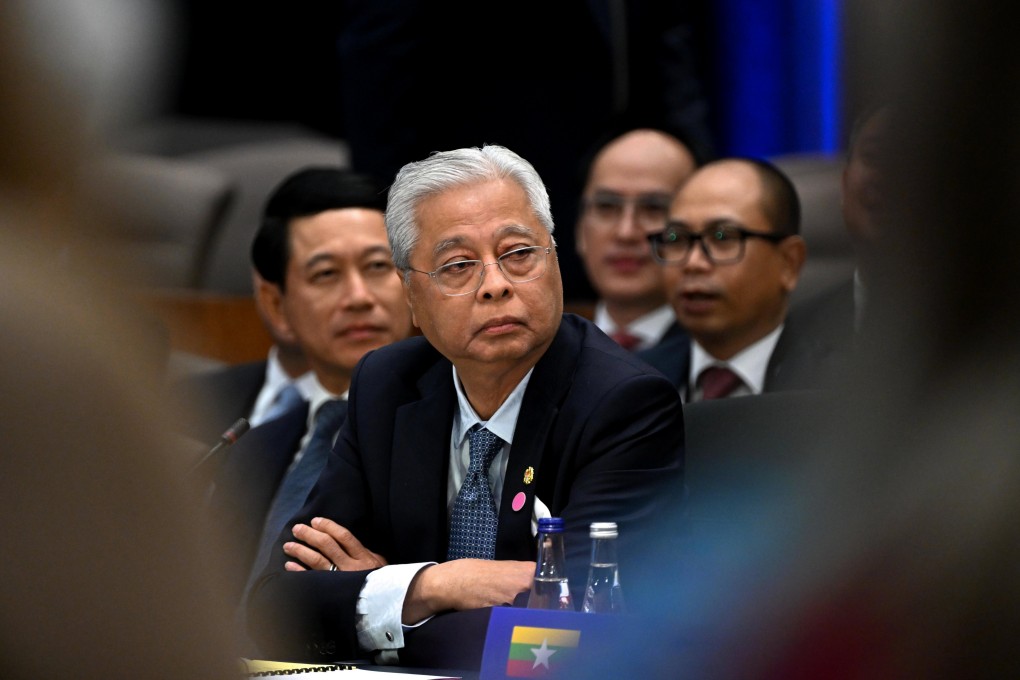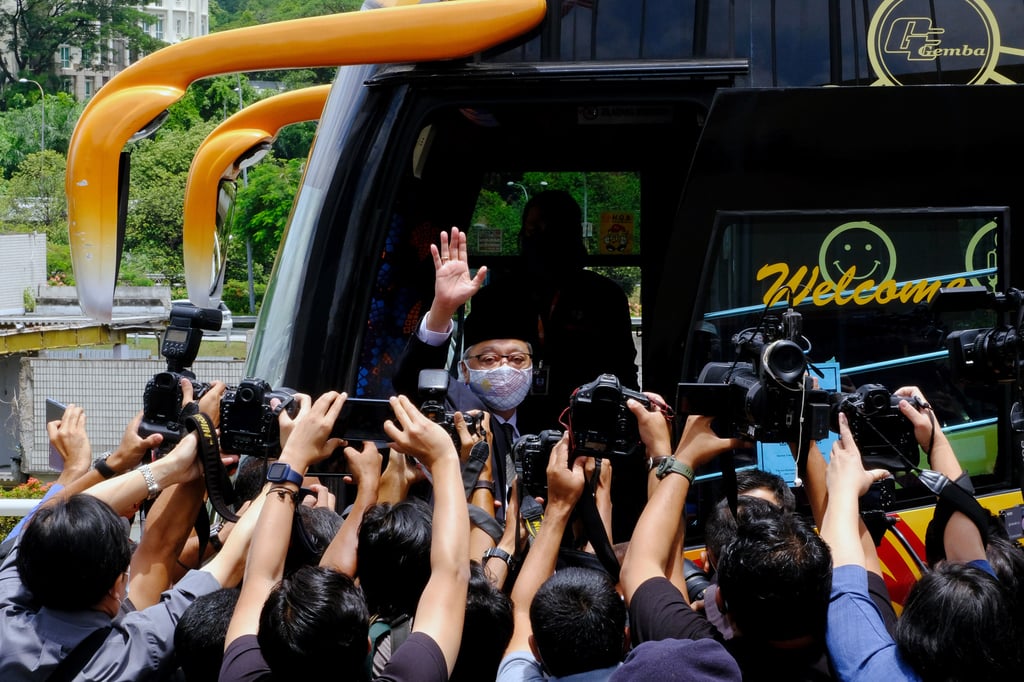Malaysia’s PM Ismail Sabri Yaakob faces mounting pressure to call for snap polls, but will he cave?
- He’s in tricky situation as nation’s first PM who’s not head of political party, but his coalition, in power 60 years until 2018, says it’s ready for an election
- There are also the likes of rising inflation and ongoing economic and health fallout caused by the Covid-19 pandemic to consider

Malaysia’s Prime Minister Ismail Sabri Yaakob was given the strongest indication yet of what is expected of him by members of his Barisan Nasional (BN) coalition on Wednesday, as the top leadership and delegates made their mandate clear – call for snap elections “soon”.
At a national convention to celebrate the former ruling coalition’s 48th anniversary of its founding, BN Chairman Ahmad Zahid Hamidi spurred hundreds of delegates to rise to their feet when he asked whether they wanted “to have national elections this year” and have them “soon”.
“PM, we trust you. Do it as soon as possible. PM, we are ready to face PRU15!” Ahmad Zahid said in his closing speech at the convention to loud cheers from delegates, using the Malay phrase for the 15th general election.
This was the latest, and arguably the strongest, push for Ismail Sabri to call for national polls, something he has had to regularly grapple with since taking over the premiership in August last year.
